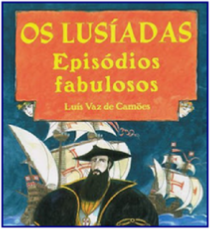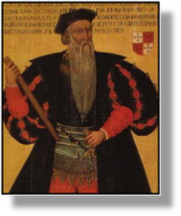


LOURENCO DE ALMEIDA 1508 (H7)
xxxxxThe Portuguese  sea captain Lourenco de Almeida, son of the first viceroy of Portuguese India, led an expedition to Ceylon (now called Sri Lanka) in 1505, and founded a settlement at Colombo in order to increase trade in the area. This brought him into direct conflict with Arab and Egyptian traders and led to an all-
sea captain Lourenco de Almeida, son of the first viceroy of Portuguese India, led an expedition to Ceylon (now called Sri Lanka) in 1505, and founded a settlement at Colombo in order to increase trade in the area. This brought him into direct conflict with Arab and Egyptian traders and led to an all-
xxxxxIn 1510 the Portuguese, led by his father Francisco de Almeida, a former soldier, put to flight a combined Turkish and Muslim fleet off the port of Diu, and finally re-
xxxxxIncidentally, the exploits of Lourenco de Almeida and the gallantry he showed in his last battle - poet Luis de Camoens. The title of the poem, Os Lusiadas (The Lusiads) refers to Lusitania, the name given to Portugal and the surrounding area by the Romans.
poet Luis de Camoens. The title of the poem, Os Lusiadas (The Lusiads) refers to Lusitania, the name given to Portugal and the surrounding area by the Romans.
xxxxx…… Two years later, in 1510, the Portuguese soldier Afonso de Albuquerque (1462-
xxxxxThe Portuguese sea captain Lourenco de Almeida founded a trading settlement at Colombo, Ceylon, in 1505. This led to conflict with Arab and Egyptian traders. He gained a victory against the Arabs off the west coast of India, but in 1508 was surrounded by an Egyptian armada off Chaul. His ships were destroyed and he was mortally wounded. Two years later, however, an expedition led by his father, Francisco, defeated a Turkish-



Acknowledgement
Afonso: 16th century, artist unknown – National Museum of Antique Art, Lisbon
H7-